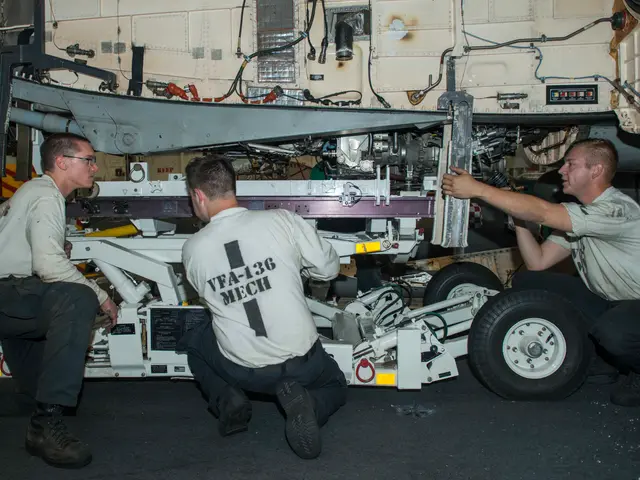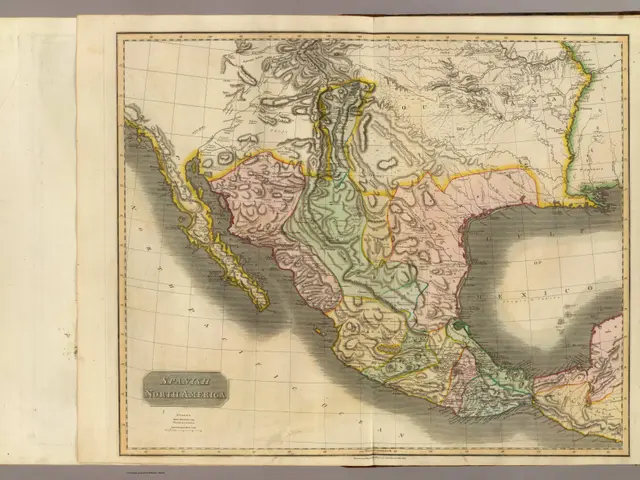International bodies negotiate reconciliatory agreement regarding EU's target in UN's climate standards
The European Union (EU), known for its commitment to climate action, is currently facing a setback in its efforts to submit a more ambitious 2040 emissions reduction target. Right-wing electoral gains in several member states, competition from China, and US tariffs have curbed the EU's climate ambitions, causing a delay in the decision-making process.
Denmark, the current EU presidency, has proposed a "statement of intent" to the United Nations (UN), which includes a pledge to cut emissions between 66.3% and 72.5% compared to 1990 levels. However, this is yet to be agreed by member states, with some, such as Hungary, the Czech Republic, and Poland, viewing the plan as over-ambitious and detrimental to industry.
The delay in reaching a decision on the 2040 target has raised concerns. Michael Sicaud-Clyet of environmental group WWF stated that it sends a "bad signal" and questions EU leadership. The EU is losing its credibility on climate due to the delay, according to the WWF.
Climate has taken a backseat in Brussels due to political focus on security and defense issues, such as wars in Ukraine and the Middle East. Paris and Berlin called for the 2040 target to be discussed at a leaders' summit in October, pushing back a decision that the commission had hoped could have been reached by Thursday.
The EU is one of the world's biggest greenhouse-gas emitters, behind China, the United States, and India. Despite this, the EU has set a goal of becoming carbon neutral by 2050 under its European Green Deal. However, the EU commission's proposal to cut emissions by 90% by 2040 has faced opposition.
Some nations view climate action as a costly exercise benefiting only climate, while others, like Spain, are pushing for approval of the 90% emissions-cutting plan. Denmark and Spain are among those pushing for the approval of the ambitious plan.
The EU's credibility on climate action is not the only issue at stake. The delay in reaching a decision on the 2040 target could also impact the EU's standing at the upcoming UN conference in Brazil on November 10, where EU countries are seeking an emissions-cutting plan to present.
Wopke Hoekstra, the European Commissioner for Climate, stated that a deal on the 2040 target could still be reached before COP30. France wants more clarity on the investment framework to support decarbonization before committing to the 90% emissions-cutting plan.
The EU's inability to reach a consensus on its climate targets has led to speculation about the end of the European Green Deal era. Giannelli stated that the European Green Deal era is over. The EU's climate ambitions are facing significant challenges, but the future remains uncertain.
Read also:
- Russia, according to Zelensky, lacks the prowess for launching another significant offensive.
- Russia's Latest Peace Proposals for Donbas: New Diplomatic Landscape Emerges amid Alaska Summit, Potentially Opening Ceasefire Opportunities
- Amidst India's escalating climate crisis, transgender individuals continue to persevere
- Contentious Discussion Surrounding the Movie Release of "Planet of the Humans"








